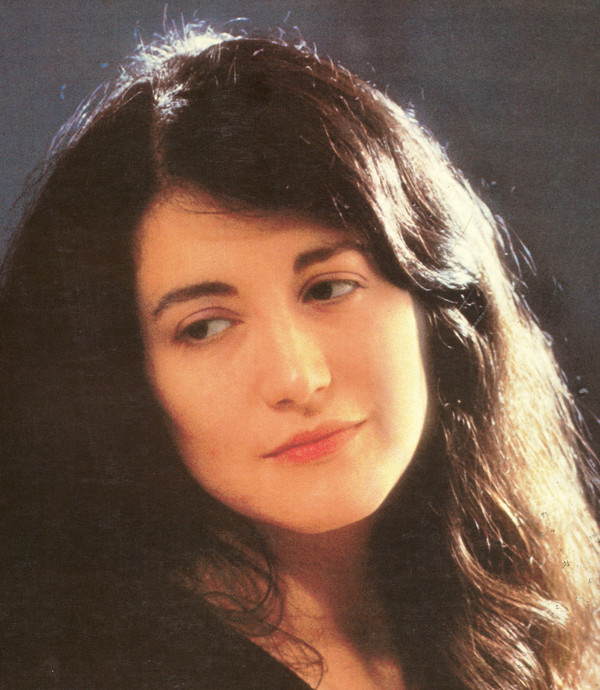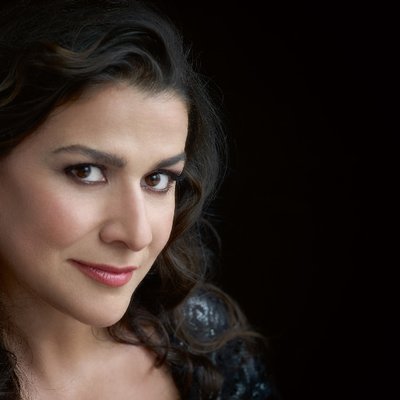This Week in Classical Music: June 2, 2024. Argerich and Bartoli. For several weeks now we’ve been posting entries about composers, neglecting the performers. In a way, it’s understandable: somehow, we value the creative talent of composers higher than that of performers and interpreters. It’s not immediately obvious why a gift from God of one type should be considered more important than another, especially considering that, historically, this has not always been the case, but this is a topic for another time. Two supremely gifted women were born this week, the pianist Martha Argerich, on June 5th of 1941, and the singer Cecilia Bartoli, on June 4th of 1966. Argerich, one of the most celebrated musicians of our time, still performs, at the age of 83. Here’s part of her schedule for June of this year: three performances on June 13th through 15th of Beethoven’s Second Piano Concerto in Rome at the Auditorium Il Parco Della Musica, then several concerts in Hamburg – playing Ravel’s La Valse for two pianos with Sergio Tiempo on the 20th, the next day playing chamber pieces of Schumann, Beethoven and Shostakovich, and the following day giving a concert of Chopin pieces. And it goes like that for the rest of the month, almost every day: Schumann’s Dichterliebe with Ema Nikolovska, Beethoven’s Triple Concerto with Gil Shaham and Edgar Moreau, some Debussy, Schubert and Mussorgsky, and on the last day of the month, Shostakovich’s Concerto no. 1, for piano and trumpet with Sergei Nakariakov, a Russian-Israeli, Paris-based trumpet virtuoso. What amazing energy! We wish her many years to come.
Cecilia Bartoli was born in Rome and studied there at the Santa Cecilia Conservatory. She made her opera debut at the age of 21, and one year later was already widely known in Europe. Bartoli has a rare voice, a coloratura mezzo-soprano, with a huge range and unique flexibility. This allowed her to sing not just the standard mezzo repertoire, such as Rosina in The Barber of Seville, Zerlina in Don Giovanni, Cherubino in The Marriage of Figaro, or Dorabella in Così fan tutte, all of which she did extremely well;, she also brought to life Baroque music rarely heard before, and almost never performed on such a level, not since the end of the era of castrati. Here, for example, is Bartoli performing two arias from Vivaldi’s opera Griselda. First, Agitata da due venti (Moved by the wind), recorded in 1998 with the ensemble Sonatori de la Gioiosa Marca, and next, Dopo Un'orrida Procella (After a horrible storm), recorded one year later with Il Giardino Armonico under the direction of Giovanni Antonini. We find Bartoli’s musicianship and technique incredible.
Here are the names of three conductors born this week, Yevgeny Mravinsky, born June 4th of 1903, who led the Leningrad Philharmonic for 50 years and was a great interpreter of the music of Tchaikovsky and Shostakovich; a wonderful Mahlerian, the German conductor Klaus Tennstedt (June 6th of 1926); and the Jewish Hungarian-American, George Szell (June 7th of 1897), who, among other things, made the Cleveland Orchestra into one of the best in the world.
Argerich and Bartoli
This Week in Classical Music: June 2, 2024. Argerich and Bartoli. For several weeks now we’ve been posting entries about composers, neglecting the performers. In a way, it’s understandable: somehow, we value the creative talent of composers higher than that of performers and interpreters. It’s not immediately obvious why a gift from God of one type should be considered more important than another, especially considering that, historically, this has not always been the case, but this is a topic for another time. Two supremely gifted women were born this week, the pianist Martha Argerich, on June 5th of 1941, and the singer Cecilia Bartoli, on June 4th of 1966. Argerich, one of the most celebrated musicians of our time, still performs, at the age of 83. Here’s part of her schedule for June of this year: three performances on June 13th through 1
understandable: somehow, we value the creative talent of composers higher than that of performers and interpreters. It’s not immediately obvious why a gift from God of one type should be considered more important than another, especially considering that, historically, this has not always been the case, but this is a topic for another time. Two supremely gifted women were born this week, the pianist Martha Argerich, on June 5th of 1941, and the singer Cecilia Bartoli, on June 4th of 1966. Argerich, one of the most celebrated musicians of our time, still performs, at the age of 83. Here’s part of her schedule for June of this year: three performances on June 13th through 1 5th of Beethoven’s Second Piano Concerto in Rome at the Auditorium Il Parco Della Musica, then several concerts in Hamburg – playing Ravel’s La Valse for two pianos with Sergio Tiempo on the 20th, the next day playing chamber pieces of Schumann, Beethoven and Shostakovich, and the following day giving a concert of Chopin pieces. And it goes like that for the rest of the month, almost every day: Schumann’s Dichterliebe with Ema Nikolovska, Beethoven’s Triple Concerto with Gil Shaham and Edgar Moreau, some Debussy, Schubert and Mussorgsky, and on the last day of the month, Shostakovich’s Concerto no. 1, for piano and trumpet with Sergei Nakariakov, a Russian-Israeli, Paris-based trumpet virtuoso. What amazing energy! We wish her many years to come.
5th of Beethoven’s Second Piano Concerto in Rome at the Auditorium Il Parco Della Musica, then several concerts in Hamburg – playing Ravel’s La Valse for two pianos with Sergio Tiempo on the 20th, the next day playing chamber pieces of Schumann, Beethoven and Shostakovich, and the following day giving a concert of Chopin pieces. And it goes like that for the rest of the month, almost every day: Schumann’s Dichterliebe with Ema Nikolovska, Beethoven’s Triple Concerto with Gil Shaham and Edgar Moreau, some Debussy, Schubert and Mussorgsky, and on the last day of the month, Shostakovich’s Concerto no. 1, for piano and trumpet with Sergei Nakariakov, a Russian-Israeli, Paris-based trumpet virtuoso. What amazing energy! We wish her many years to come.
Cecilia Bartoli was born in Rome and studied there at the Santa Cecilia Conservatory. She made her opera debut at the age of 21, and one year later was already widely known in Europe. Bartoli has a rare voice, a coloratura mezzo-soprano, with a huge range and unique flexibility. This allowed her to sing not just the standard mezzo repertoire, such as Rosina in The Barber of Seville, Zerlina in Don Giovanni, Cherubino in The Marriage of Figaro, or Dorabella in Così fan tutte, all of which she did extremely well;, she also brought to life Baroque music rarely heard before, and almost never performed on such a level, not since the end of the era of castrati. Here, for example, is Bartoli performing two arias from Vivaldi’s opera Griselda. First, Agitata da due venti (Moved by the wind), recorded in 1998 with the ensemble Sonatori de la Gioiosa Marca, and next, Dopo Un'orrida Procella (After a horrible storm), recorded one year later with Il Giardino Armonico under the direction of Giovanni Antonini. We find Bartoli’s musicianship and technique incredible.
Here are the names of three conductors born this week, Yevgeny Mravinsky, born June 4th of 1903, who led the Leningrad Philharmonic for 50 years and was a great interpreter of the music of Tchaikovsky and Shostakovich; a wonderful Mahlerian, the German conductor Klaus Tennstedt (June 6th of 1926); and the Jewish Hungarian-American, George Szell (June 7th of 1897), who, among other things, made the Cleveland Orchestra into one of the best in the world.